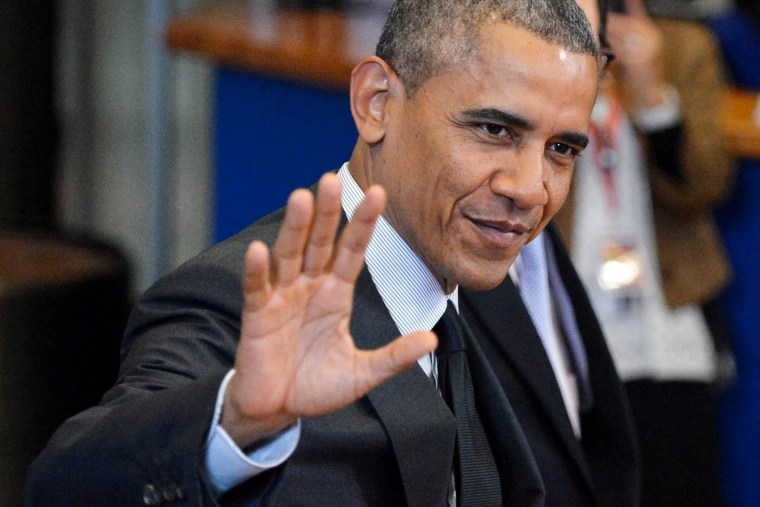"I'll repeat what I said two days ago. We have a basic principle: We do not leave anybody wearing the American uniform behind. We had a prisoner of war whose health had deteriorated and we were deeply concerned about, and we saw an opportunity and we seized it. And I make no apologies for that. "We had discussed with Congress the possibility that something like this might occur. But because of the nature of the folks that we were dealing with and the fragile nature of these negotiations, we felt it was important to go ahead and do what we did. And we're now explaining to Congress the details of how we moved forward. But this basic principle that we don't leave anybody behind and this basic recognition that that often means prisoner exchanges with enemies is not unique to my administration -- it dates back to the beginning of our Republic. "And with respect to how we announced it, I think it was important for people to understand that this is not some abstraction, this is not a political football. You have a couple of parents whose kid volunteered to fight in a distant land, who they hadn't seen in five years and weren't sure whether they'd ever see again. And as Commander-in-Chief of the United States Armed Forces, I am responsible for those kids. And I get letters from parents who say, if you are in fact sending my child into war, make sure that that child is being taken care of. And I write too many letters to folks who unfortunately don't see their children again after fighting the war."
'Absolutely no apologies'
If Republicans are waiting for President Obama to express any regret for having freed an American prisoner of war, they'll apparently be waiting for a while.

If Republicans are waiting for President Obama to express any regret for having freed an American prisoner of war, they'll apparently be waiting for quite a while.
Obama appeared alongside British Prime Minister David Cameron at a press conference in Brussels earlier, and a reporter asked the U.S. leader, "Have you been surprised by the backlash that's been whipped up by your decision to do a deal to free Bowe Bergdahl? And what do you think is motivating that?"
The president initially responded, "I'm never surprised by controversies that are whipped up in Washington," before addressing the substantive issue.
Obama added, "I make absolutely no apologies for making sure that we get back a young man to his parents and that the American people understand that this is somebody's child and that we don't condition whether or not we make the effort to try to get them back."
I'm not at all sure how elected officials -- or anyone else, really -- can find such a sentiment objectionable. There's certainly room for a credible discussion about whether the White House was justified in acting outside the confines of the law regarding congressional notification, and that debate surely matters, as does a conversation about the use of signing statement.
But exactly which part of the president's response does the right find objectionable?
Related video: